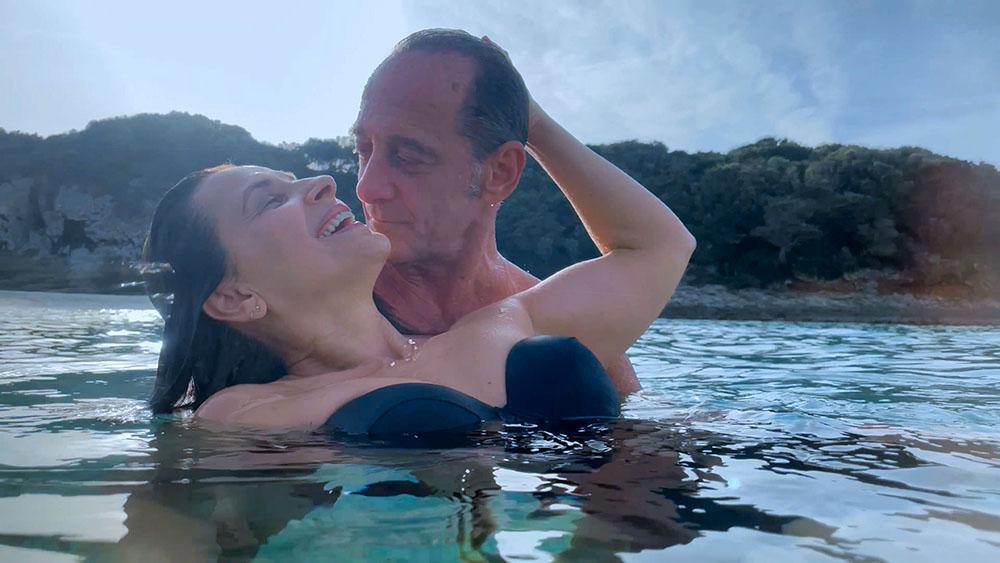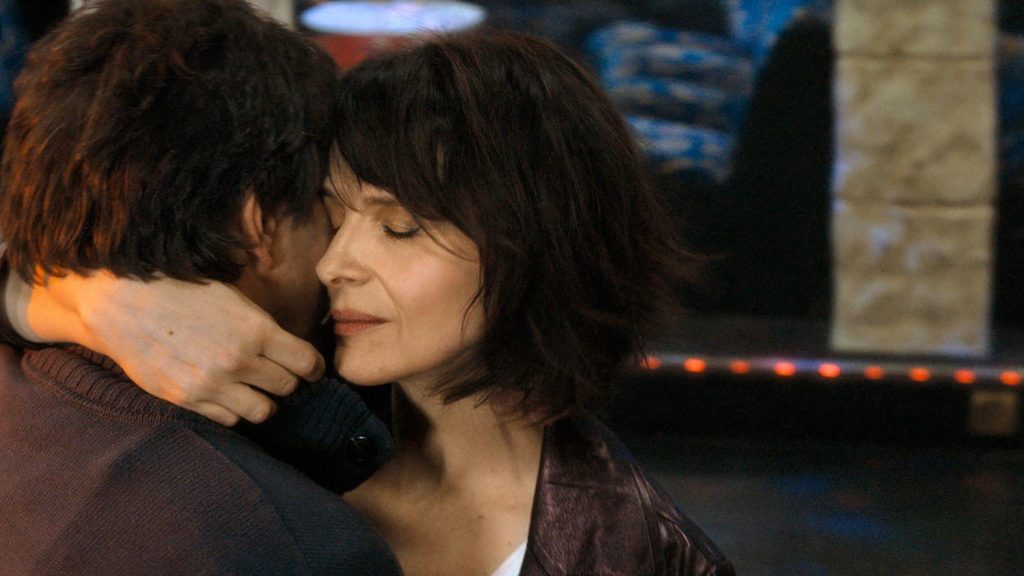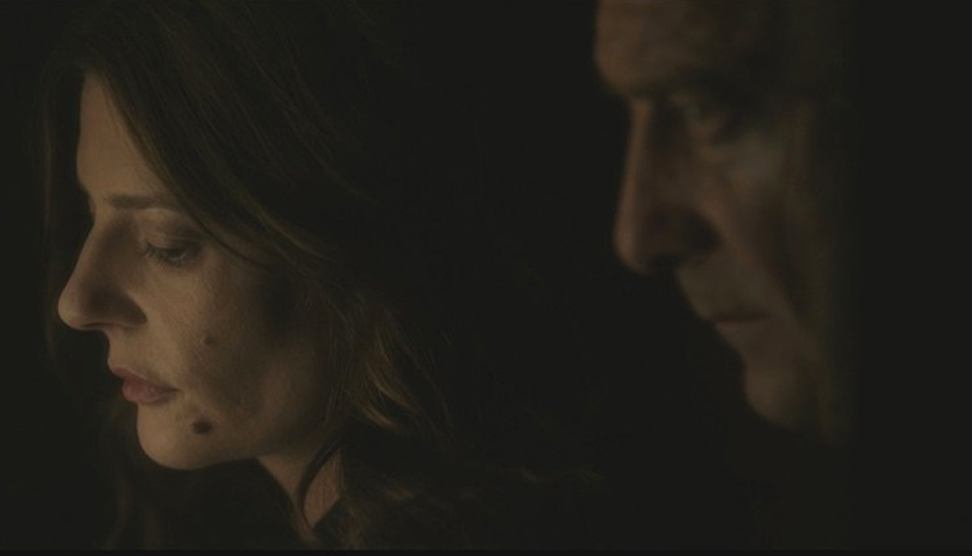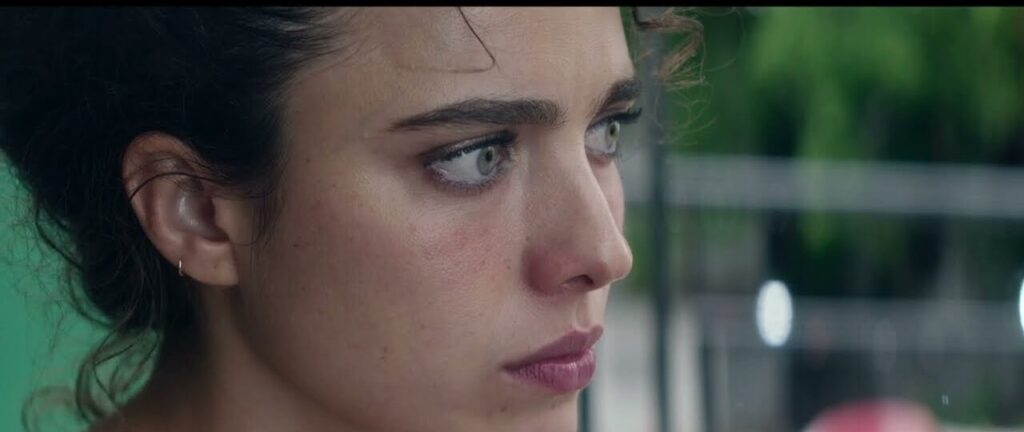
In the atmospheric neo-noir Stars at Noon, it’s the early 1980s in Nicaragua, and wannabe journalist Trish (Margaret Qualley) is learning that one can not always live by ones wits. She’s hoodwinked a magazine into paying her way to write a travel puff piece, while always intending to write a political expose; that article has annoyed the government to the point of revoking her press pass and confiscating her passport. Now she’s broke, unable to pay her way out of the city’s cheapest motel and into the airport, cadging meals from hotel buffets and obsessing on how to procure some shampoo for her increasingly sweaty scalp.
What she has going for her is command of the Spanish language and having learned her way around the country, geographically and culturally. She’s mastered the alphabet soup of Central American intelligence and security entities, each nastier and more ruthlessly repressive than the last. Trish is also highly manipulative and eager to sleep with any man who might help her in any way.
She picks up the handsome Brit Daniel (Joe Alwyn) at his upscale hotel, intending to get a roll in the hay, 50 dollars US and some stolen hotel shampoo out of the encounter. When Trish finds a hidden gun in his stuff, she (and the audience) think he must be dangerous, like a hit man or an intelligence operative. When she finds that he’s also in over his head, she and he have fallen in love with each other.
He’s not dangerous to others – he’s dangerous to be with. She was in desperate circumstance, but now the two of them are desperate for their lives. It’s too late – their fates are now entangled. And they’re going to have to make a mad dash for the border.
Stars at Noon won the Grand Prixe, essentially second place at Cannes, and this must have been because of the jury’s reverence for Claire Denis, the iconic French director, and a glass ceiling-busting female filmmaker at that. As one would expect from a Denis film, Star at Noon is competently crafted, but it’s just way too long at two hours and twenty minutes. Although Qualley and Alwyn spend a lot of that time unclothed and grinding away, I didn’t find their chemistry to smoke. Stars at Noon is too needlessly languorous and not sizzling enough to be a really good movie.
Qualley pulls her dress over her head within minutes of meeting any man; if the director weren’t female, Stars at Noon would face criticism for male gaze exploitation.
Denis also has oddly chosen a sound track that could have lifted from Showtime soft porn.
Qualley with her fidgety energy and her hyper-direct gaze, is perfectly cast as Trish. I first saw Qualley when she jumped off the screen as a Manson Girl in Once Upon a Time..In Hollywood and then in Fosse/Verdon. She has the charisma to carry a movie much better than Stars at Noon.
Joe Alwyn is dreamy enough to make it credible that Trish would fall hard for Daniel.
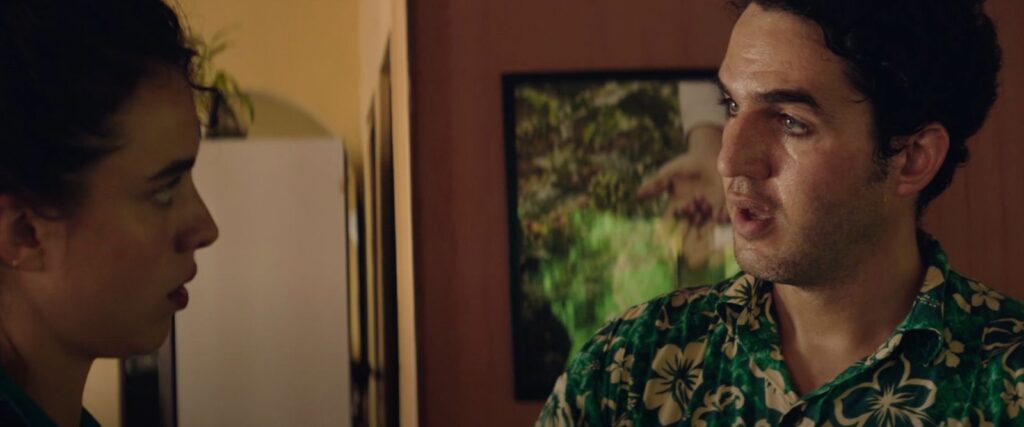
I can’t say enough about Benny Safdie’s performance as a character credited as CIA Man. His affability makes him all the more sinister. The CIA Man knows that he holds all the cards, and there’s no need to seem like a brute, even if he is going to compel Trish into an egregious and traumatizing act. It’s all business, thank you very much.
I usually think of Benny and his brother Josh as indie directors (Uncut Gems), but Benny has been acting and he has real chops. In Licorice Pizza, he nailed the role of the closeted, charismatic do-gooder politician,
John C. Reilly shows up briefly, wearing a wild 1980s-perm-gone-wrong as the editor that Trish has burned her very last bridge with, and his cameo is hilarious.
I watched Stars at Noon on Amazon, one of the many streaming platforms which offer it.

